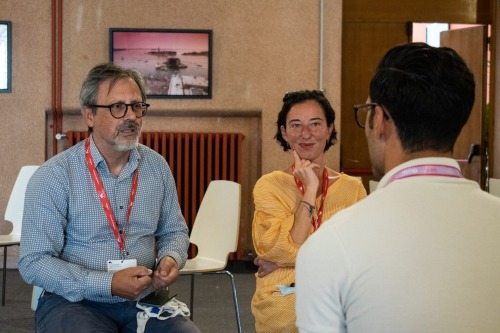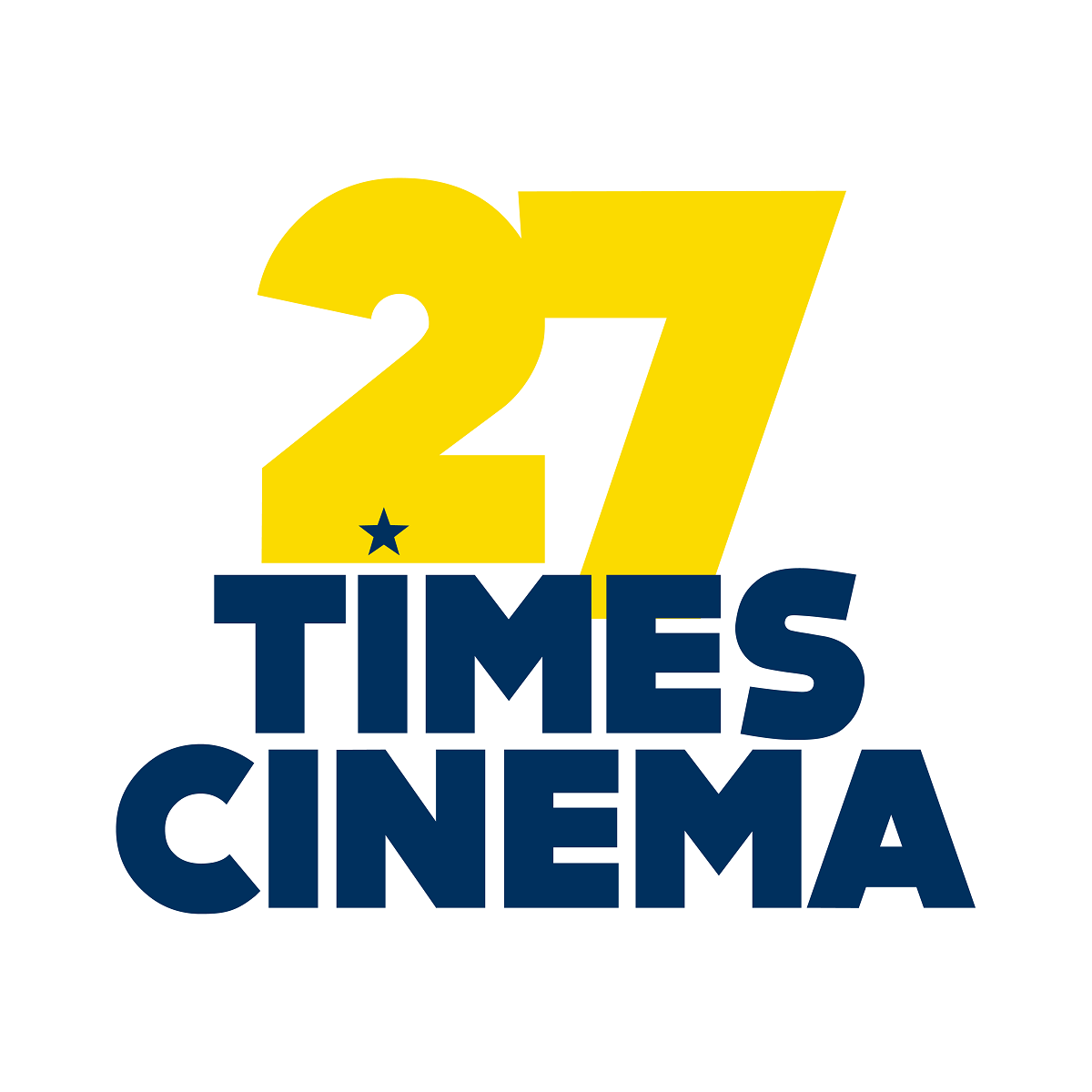INTERVIEW - MARISELLA ROSSETTI & JINDRICH PIETRAS

By Nikolas Zikopoulos (pics by © Gonçalo Almeida)
Marisella Rossetti and Jindrich Pietras are in charge of defining the main axes for the LUX Award, to coordinate the LUX Audience Days and deal with distributors, film festivals, and European Parliament Information Offices. After a panel discussion at the 2020 Venice Film Festival, where they talked further about their work, I had the opportunity to interview them in person and gain a deeper and informative understanding about the Lux Award.
First of all, I would like to know what does the LUX Award mean to you. Is it a personal goal to promote diversity within European cinema?
Marisella: It’s our baby actually! I really started 11 years ago with the LUX Prize and it was really like seeing a child grow. Then of course it’s a political engagement as well, because cinema is a way to raise awareness about so many social and political topics, but in a very emotional and smart way. It is accessible also to those who are not necessarily committed to NGOs or political fields. Cinema can change the life of someone and it is something very important to keep on promoting. Moreover, it’s a super interesting bridge between the political world and the civil society. Not all members of the European Parliament are necessarily keen on going to the cinema, but with the LUX Prize we started to get them little by little used to interrogate themselves about different situations and to appreciate and get familiar to an artform that is very interesting.
Which is the selection process of the finalist films? Are there any specific criteria?
Jindrich: For the new edition, there is a shortlist decided by the board of EFA, but the members of the LUX selection panel have also the right to propose some other films. These two lists are then put together and discussed. It’s a very professional, but at the same time very emotional experience. Out of maybe 50 films they have to nominate 3, according to some criteria which are, this particular year, very challenging because of the COVID. One of the criteria is in terms of time. The films have to be released between the Cannes or Karlovy Vary film festivals until the 15th of September. At the same time, they have to be distributed at least in five countries, or sold to 5 EU countries to be distributed. And they must have a potential for a European discussion, to really address European issues.
Could you elaborate on the new version of the LUX Award?
Jindrich: We want the audience to be part of the whole decision process. It’s a new audience award so they have to participate and be involved in the whole process. So in that way we want to re establish the notion of a European film that has some messages that can be seen as pan-European and serve to create a fruitful place to discuss about Europe.
Marisella: We realized that a truly pan-European award did not exist, so we said why not do it ourselves. There are several audience and public awards in a lot of festivals around Europe, but nothing that really unite the 27 European countries.
How difficult is to distribute and market the films all across Europe?
Jindrich: This award does not replace the distribution process but rather supports it by subtitling the films and giving some extra tools to the distributors in order to help them buy and release the films. Tools like the pedagogical kit, the film copy itself or the subtitles are created by us. Also for the winning film, a version for visually and hearing impaired is created. Those might seem as small incentives, but for a lot of small distributors are important in their decision process of buying the films.
Is it easy or not to acquire the yearly funding from the European Parliament? Do you have to persuade them or is the funding already guaranteed for each year?
Marisella: In a way, we are now a bit more supported, but it has not always been like that. Sometimes they felt they were not entitled to give an award to a film and that it was not a priority to fund. But for a cinema prize given by the European Parliament, it is true that sometimes we had to convince a larger majority about the utility and the opportunity to keep on supporting a tool like that.
Do the LUX Award movies have a successful run across Europe or is it challenging to bring the audiences to watch them?
Marisella: Of course we would like to make the outreach grow. With the means that we have at the moment, the human resources, the contribution from the festivals and the cinemas, we see that it is not enough. We should do more and that is why we are trying to launch this new award. But we always want to choose movies that are not necessarily mainstream. For example with Paweł Pawlikowski, who was in competition with Ida in 2014, we selected his film long before winning the Oscar. So our selection panel had this foresight on the film. It also happened with Céline Sciamma, who was very well known in France and Germany, but not as much as now with Portrait of a Lady on Fire. These films traveled all across Europe, so it was really a journey for them.


